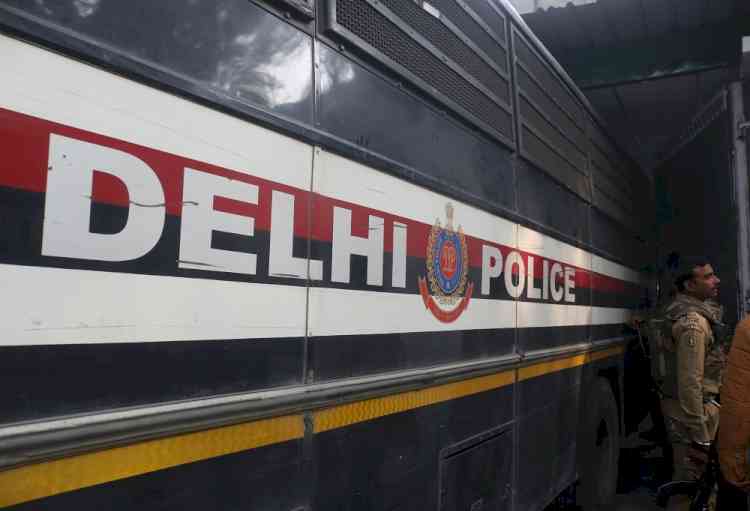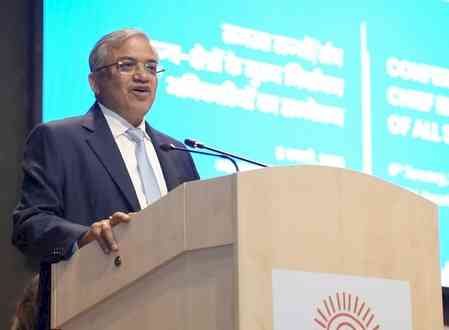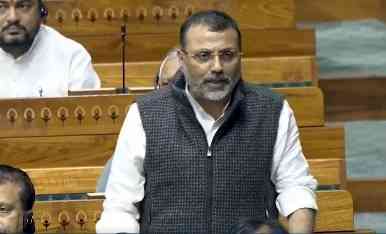Counterfeit currency of face value Rs 26 lakh seized last year: Delhi Police
The Delhi Police's anti-terror unit, the Special Cell, was successful in recovering Fake Indian Currency Notes (FICN) of the face value of Rs 25,89,000 during 2021, officials said.

Ujwal Jalali
New Delhi, Feb 27 (IANS) The Delhi Police's anti-terror unit, the Special Cell, was successful in recovering Fake Indian Currency Notes (FICN) of the face value of Rs 25,89,000 during 2021, officials said.
The recovery of such massive amounts of counterfeit currency in one year came even five years after demonetisation, which was, at that time, termed a 'hammer stroke' against the menace of fake currency.
As many as 13 counterfeiters were also arrested.
According to the Special Cell officials, the recovered FICN primarily belonged to the currency denominations of Rs 2,000, 500, 200, and 100 and were of high to medium quality.
In the past one year, the most notable achievement of the unit in this field was the apprehension of notorious counterfeiters Sheikh Shehzad and Habib-ur-Rehman under the provisions of Unlawful Activities (Prevention) Act and seizure of high quality FICN of the face value of Rs 2,16,000 in their possession.
The Special Cell says that since last four years many syndicates have again cropped up and started smuggling and circulating the FICN in India, despite production, smuggling, or circulation of high-quality fake Indian paper currency, coin, or any other material has been made a terrorist act under the Unlawful Activities (Prevention) Act.
Pakistan's Role Under Lens
India got a breather for just one-year post demonetisation, during which there were very few reports of the circulation of fake Indian notes. However, since then, India's western neighbour allegedly continued with its nefarious designs to destabilise the country's economy by pumping the fake currency, as per officials. As India's western border is heavily guarded, Pakistan is now using the other routes to infiltrate counterfeit money from two other neighbouring countries with which India shares its border.
From the investigation of various cases of big seizures of FICN in Kathmandu, Bangladesh and in India after demonetisation, it has been strongly suspected that big consignments of FICN are first brought in Nepal and Bangladesh from Pakistan through Gulf countries by air.
From there, the counterfeit money is smuggled into India through the porous Nepal and Bangladesh borders by members of global FICN syndicates.
Their counterparts and contacts in India further supply the FICN in parts of the country through a pre-existing network of FICN.
From several syndicates that were busted during the past one year, a strong involvement of foreign nationals involved in the racket of pumping fake currency in India came to the fore.
On January 9, an international syndicate involved in the supply of FICN was busted and its key supplier, Raizul Azam, a resident of Motihari in Bihar was arrested.
In a startling revelation, the accused Azam disclosed to have already supplied the fake currency amounting more than Rs 1 crore in Delhi during the last about four years after demonetisation.
An MoU has also been signed between India and Bangladesh to prevent and counter smuggling and circulation of fake currency notes.
Training programmes are conducted for the officers of Bangladesh and Nepal Police to develop their competence in the areas of detection, investigation, and effective prosecution of cases relating to fake currency.
The major challenge is that the recovered fake currencies are of such fine quality that it is difficult to distinguish it from the original one by the naked eye as the notes are having almost similar security features in terms of texture, paper quality, colour, security thread, and watermarks.
But what are the steps taken by the Indian government to tackle this menace?
Union Minister of State for Home Nityanand Rai told the Parliament during the Monsoon Session in 2021 that a Terror Funding and Fake Currency Cell (TFFC) has been constituted in National Investigation Agency (NIA) to conduct a focused investigation of terror funding and fake currency cases.
He said that security at the borders has been strengthened by using new surveillance technology, deploying additional manpower for round the clock surveillance, establishing observation posts, erection of border fencing and intensive patrolling.
Notably, the maximum punishment for offences related to fake currency is up to life imprisonment.
(Ujwal Jalali can be reached at [email protected])



 IANS
IANS 










